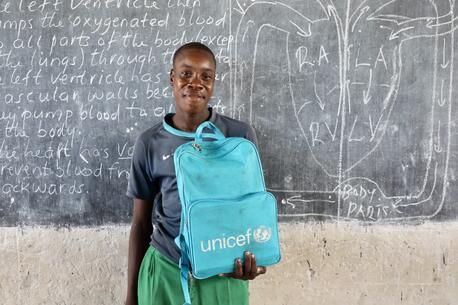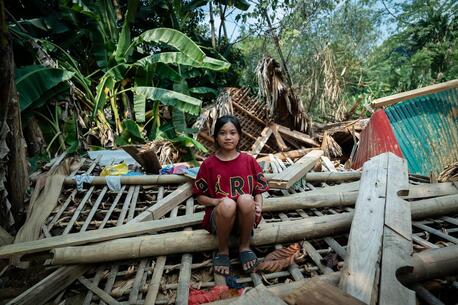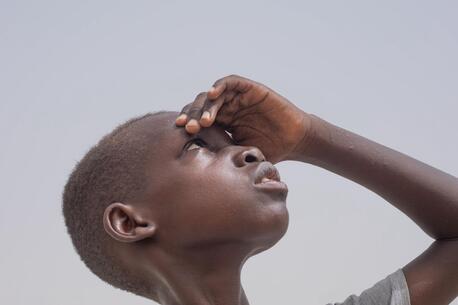
Drastic Increase in Extremely Hot Days Threatens Children's Health and Well-Being
Days with temperatures higher than 95 degrees Fahrenheit are becoming increasingly common. UNICEF is urging governments to act now to get rising temperatures under control before it's too late.
As the planet heats up, children suffer most
Almost half a billion children live in areas experiencing at least double the number of extremely hot days as their grandparents — many without the infrastructure or services to endure it, according to a new UNICEF report, A Threat to Progress.
That's extremely bad news for children, whose bodies are far more vulnerable to high temperatures. "Children are not little adults," warned UNICEF Executive Director Catherine Russell. "Young bodies heat up faster, and cool down more slowly. Extreme heat is especially risky for babies, due to their faster heart rate, so rising temperatures are even more alarming for children."
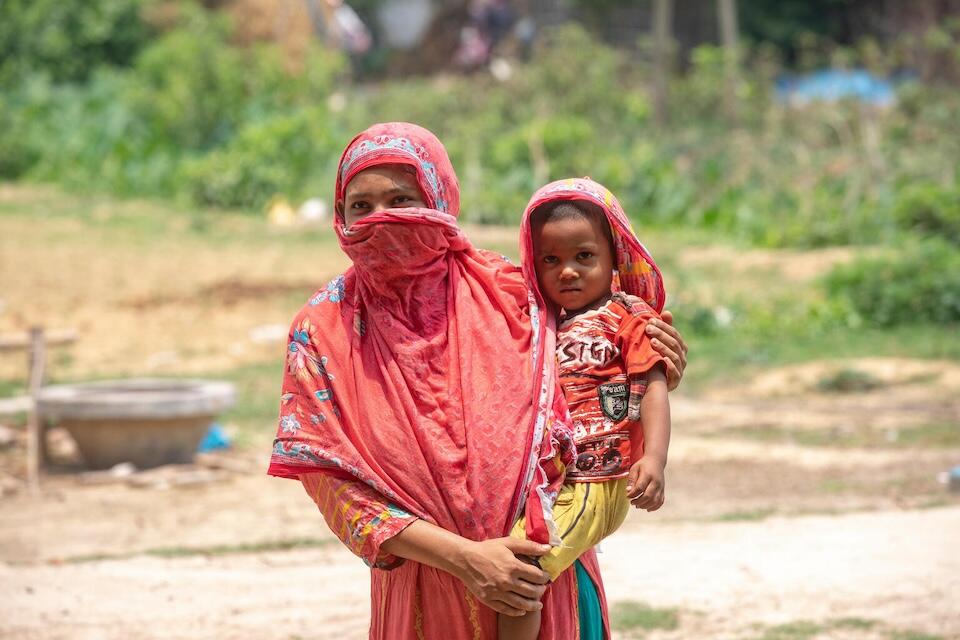
Heat stress caused by exposure to high temperatures and humidity puts kids at risk, particularly infants and young children
"The hottest summer days now seem normal," said Russell. "Extreme heat is increasing, disrupting children's health, well-being and daily routines."
Heat stress has been linked to pregnancy complications such as gestational chronic diseases, stillbirths, low birth weight and preterm birth. Excess levels of heat stress also contribute to child malnutrition and heat-related non-communicable diseases, and leave children more vulnerable to infectious diseases that spread in high temperatures like malaria and dengue.
According to the Institute of Health Metrics and Evaluation, in 2021 alone, approximately 442,000 deaths were attributable to exposure to high temperatures, with 45,000 deaths among children and 31,000 of those occurring among children under age 5.
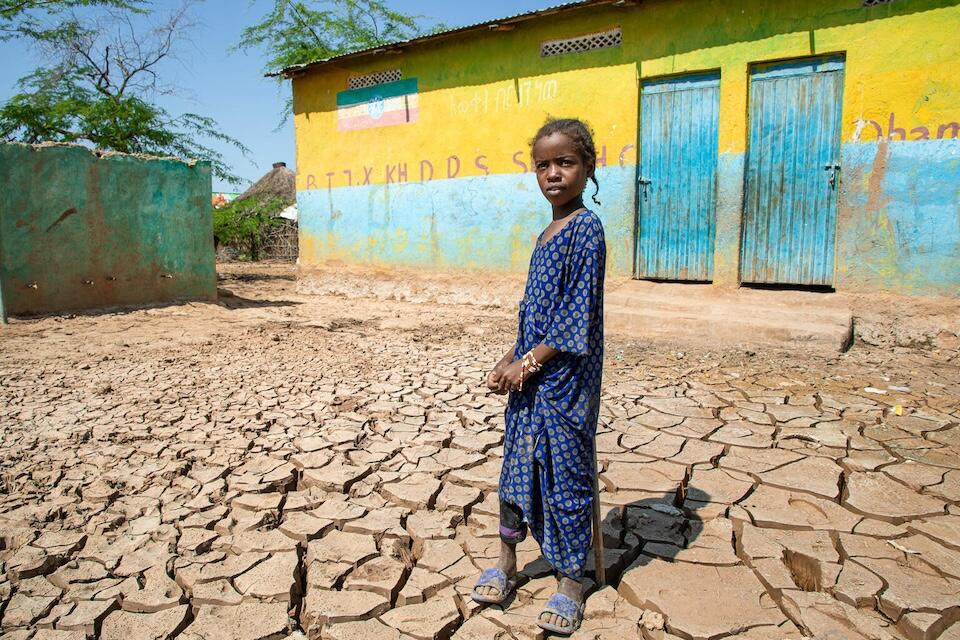
Longer, hotter, more frequent heat waves
The longer the heat wave, the more concerning its effects. While extreme heat is increasing in every country worldwide, the analysis shows that children are also exposed to more severe, longer and frequent heat waves. Across 100 countries, more than half of children are experiencing twice as many heat waves today as 60 years ago.
Analysis of country-level data in the new report found that in 16 countries, children now experience more than a month of additional extremely hot days compared to 60 years ago. In South Sudan, for example, children are living through a yearly average of 165 extremely hot days this decade, as opposed to 110 days in the 1960s; in Paraguay, the figure has jumped to 71 days from 36.
Eight countries including Mali, Niger, Senegal, South Sudan and Sudan are home to children who spend more than half the year in temperatures above 95 degrees.
In the United States, 36 million children are exposed to double the number of heat waves compared to 60 years ago, and 5.7 million are exposed to four times as many.
Learn how to keep children safe and healthy during a heat wave.
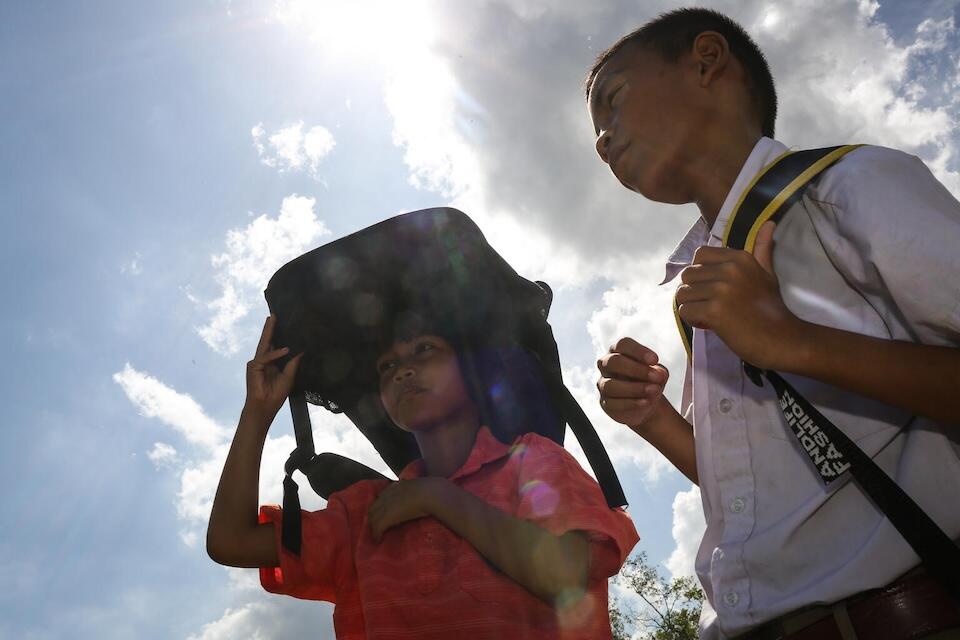
Extreme heat can impact a child's ability to learn and regulate emotions
Extreme heat can affect food and water security and contamination, damage infrastructure, disrupt services for children, including education, and drive displacement. Children with underlying vulnerabilities based on socioeconomic status, gender, location and existing health conditions are at greater risk.
Exposure to high temperatures can also impact brain development and hamper learning. According to a 58-country assessment cited in the new report, each additional day above 80.6 degrees Fahrenheit during the three years preceding an exam lowered scores by 0.18 percent of a standard deviation.
The brain detects extreme heat as a threat to well-being, triggering the stress response system. Excessive activation of the stress response during pregnancy and in young children can disrupt the development of healthy emotional regulation circuits in a child's developing brain.
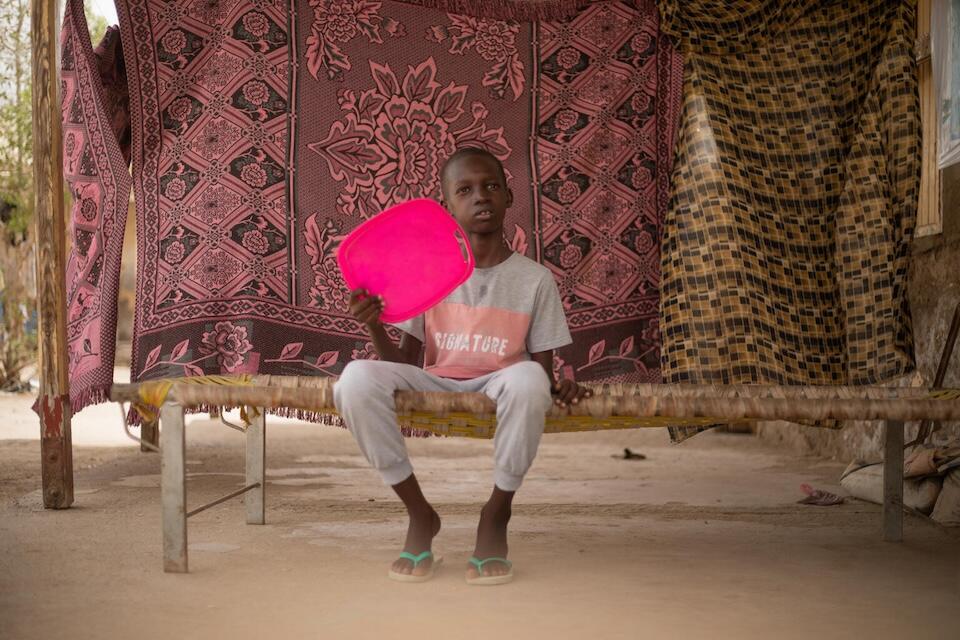
Reduce, Protect, Empower: Setting a course for climate action
In the coming months, all Member State Parties to the Paris Agreement, a legally binding international treaty on climate change, will submit new national climate plans that will set the course of climate action for a decade. UNICEF is calling on leaders, governments and the private sector to seize the opportunity to:
- Reduce emissions and fulfill ambitious international sustainability and climate change agreements with urgency to get rising temperatures under control
- Protect the lives, health and well-being of children and the resilience of their communities, including by adapting essential services to a changing climate, more frequent disasters and a degrading environment. Health workers, for example, must be trained to detect and treat heat stress; health and education facilities must be made resilient to extreme heat
- Empower every child with the developmental opportunities, education and skills needed to be a lifelong champion for the environment
The time to act is now
"Governments must act to get rising temperatures under control, and there is a unique opportunity to do that right now," Russell said. "As governments are currently drafting their national climate action plans, they can do so with the ambition and knowledge that today's children and future generations will have to live in the world they live behind."
Every child has the right to a healthy environment. Support UNICEF's work to make that right a reality. Please donate today.
HOW TO HELP
There are many ways to make a difference
War, famine, poverty, natural disasters — threats to the world's children keep coming. But UNICEF won't stop working to keep children healthy and safe.
UNICEF works in over 190 countries and territories — more places than any other children's organization. UNICEF has the world's largest humanitarian warehouse and, when disaster strikes, can get supplies almost anywhere within 72 hours. Constantly innovating, always advocating for a better world for children, UNICEF works to ensure that every child can grow up healthy, educated, protected and respected.
Would you like to help give all children the opportunity to reach their full potential? There are many ways to get involved.



